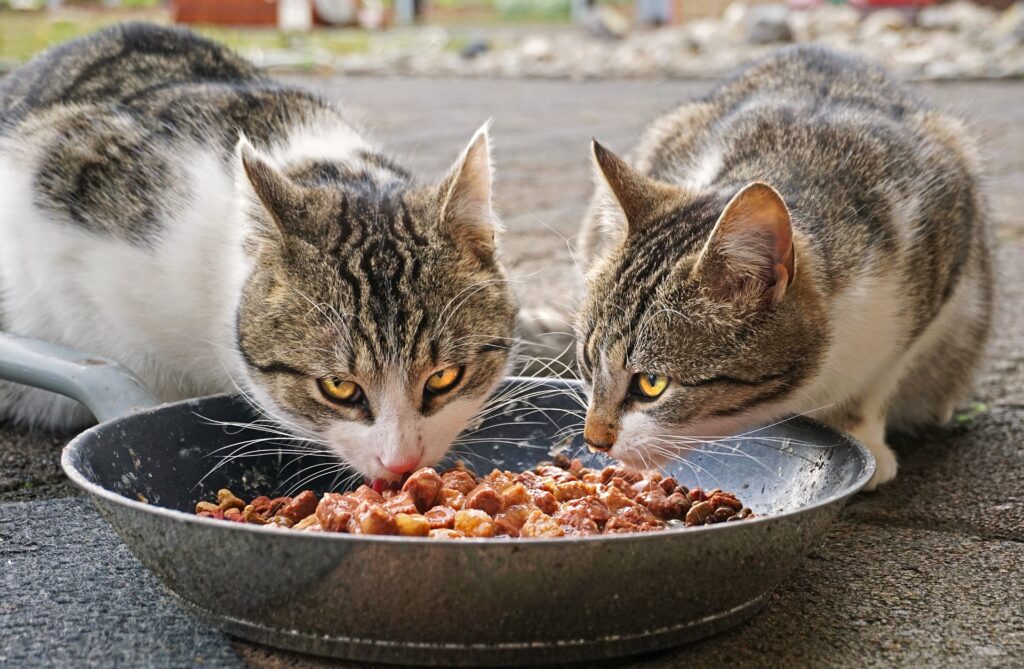Can you feed pets a vegan diet?
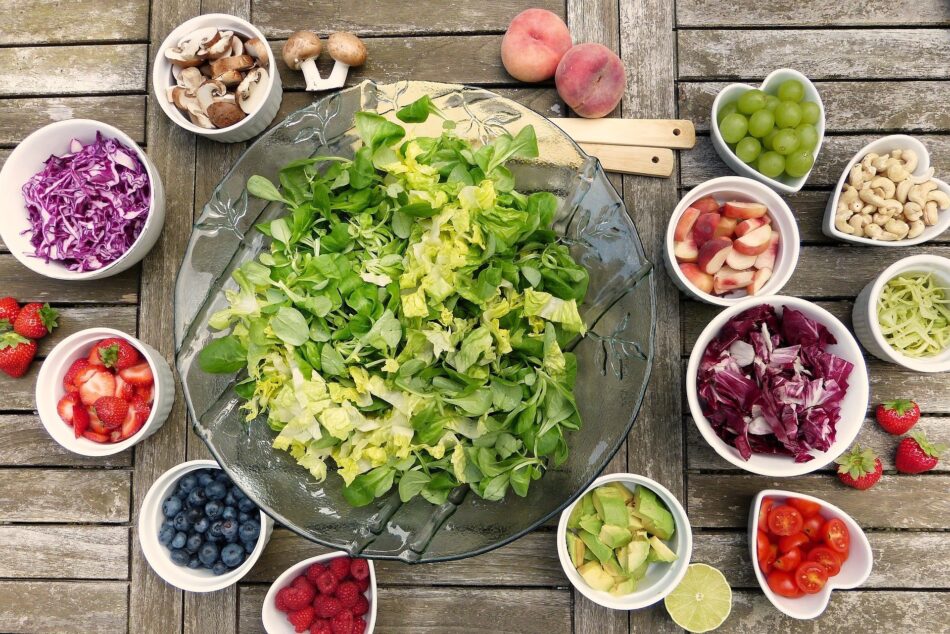
Some animals, such as rabbits and guinea pigs, are herbivores. Others, like hamsters, are omnivorous. Finally, there are also carnivores like cats that cannot survive without meat.
All animals need to have their nutritional needs satisfied. However, this does not mean you can’t have a vegan dog. Vegan cats, though, are a lot trickier.
Can my dog have a vegan diet?
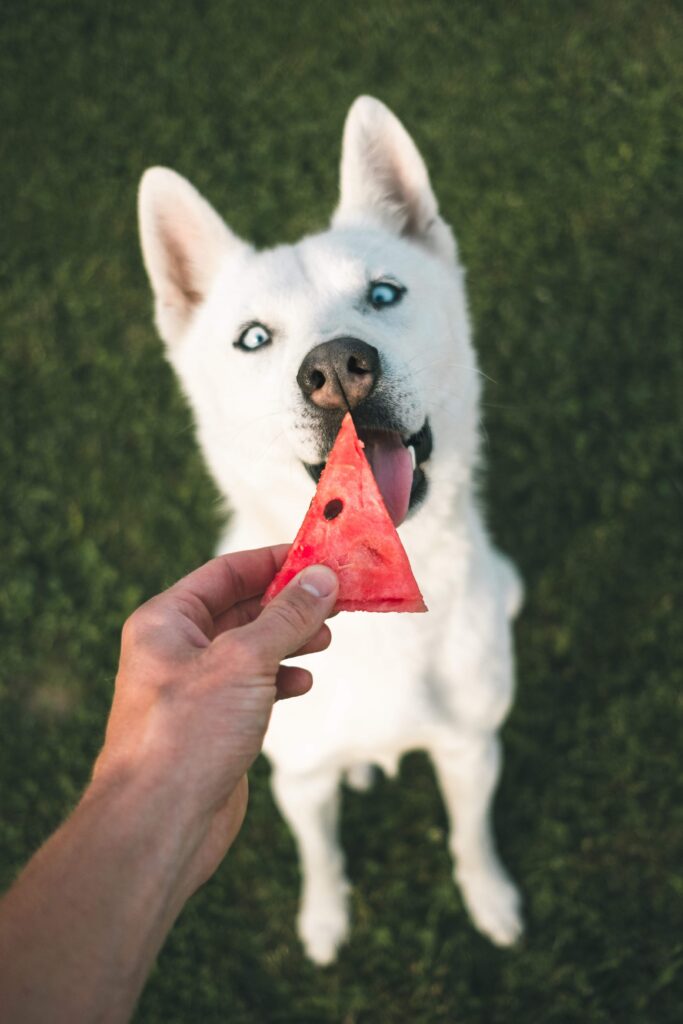 If you were to meet a species of animal for the first time and had to make an accurate guess about its diet, you would get lots of clues by looking at its teeth. The teeth of a dog, like the teeth of a bear, proclaim loud and clear that this animal is an omnivore – that is, one that eats both meat and vegetables. If you think of your dog as a domesticated wolf, you get a good idea of its natural diet.
If you were to meet a species of animal for the first time and had to make an accurate guess about its diet, you would get lots of clues by looking at its teeth. The teeth of a dog, like the teeth of a bear, proclaim loud and clear that this animal is an omnivore – that is, one that eats both meat and vegetables. If you think of your dog as a domesticated wolf, you get a good idea of its natural diet.
However, as the panda proves, a supposed meat-eater can sometimes get by perfectly well on a vegan diet. A panda’s teeth are similar to any other bear’s – long canines for meat-eating and molars for grinding vegetation. And yet pandas don’t eat anything other than bamboo. So, if a bear can be vegan, does that mean you can have a vegan dog?
The answer is yes – but it’s a yes with lots of small print! A dog requires a diet that contains the fats and proteins it would get from meat. It is dangerous to ignore this basic need and simply feed your pet with whatever you please. Some dogs have delicate stomachs at the best of times, and a low-fat, high-fibre diet can cause potentially life-threatening problems. A diet that excludes meat should never be fed to a dog without the advice of a professional pet dietician.
The collagen, elastin and keratin found in meat diets are not easily replaced by vegi equivalents. Your dog will also need the ‘long chain’ omega-3 fats found in animal products such as egg, fish and some meats. Vegan omega-3 fats are not the same as animal-derived ones.
All of which presents a headache for the vegan dog owner. There are, however, products available that claim to let your dog live a healthy, meat-free life. Before you take the plunge, it is essential to seek professional, scientific advice and guidance. Compromise is usually the best choice here – a vegan diet supplemented by some of the animal-derived essentials. Crickets, for example, can provide lots of the amino acids and keratin a vegan diet lacks, and they’re 65% protein.
Can my cat have a vegan diet?
The compromise approach is even more important for cats. These are amongst the planet’s true carnivores, obtaining all their dietary requirements from other animals.
The main challenge with minimising the meat in a cat’s diet is that, unlike many mammals (including dogs), cats cannot produce certain proteins. They have to absorb these from the meat and fish in their diet. Amino acids are another issue – cats deficient in the animal-derived amino acid taurine, for example, usually succumb to a specific type of heart problem.
Even a fortified vegan cat food cannot be confidently recommended. Turn the situation on its head, and try to imagine weaning a rabbit onto a meat-only diet, and you get some idea of the challenge – and the ethics – involved.
There are some lab-grown ‘meat’ products in development, with vegan and vegetarian cat owners in mind. However, whether these will arrive – and remain – on the market any time soon is hard to guess.
For many vegan pet owners, there is a huge ethical issue involved in feeding the animals they share a space with. Ethics, however, include the animal’s needs too, and it’s an almost impossible issue to resolve when it comes to cats. If you are able to reduce but not eliminate the meat in your cat’s diet, that’s the safer option.
Top 10 pets for vegan households
There are, of course, plenty of other pets that don’t eat meat, or that eat some meat but can still thrive on a meat-free diet. Here are our ten favourites.
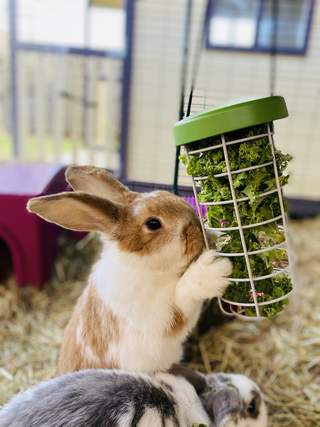 1. Rabbits. No problems here – rabbits are happy vegans, with diets based on hay and vegetables. You could argue that the soft pellets they eject and then eat are animal products of a sort, but they are simply semi-digested vegetation.
1. Rabbits. No problems here – rabbits are happy vegans, with diets based on hay and vegetables. You could argue that the soft pellets they eject and then eat are animal products of a sort, but they are simply semi-digested vegetation.
2. Guinea pigs. Like rabbits, these wonderful little characters thrive on a 100% vegan diet.
3. Hamsters. Most hamster owners give them store food, you don’t always know what’s in it. However, hamsters, like rats and mice, can do without meat.
4. Gerbils. Like hamsters, gerbils are omnivorous. They have sensitive stomachs and need a quality pellet mixture. Food that is too fresh can harm them.
5. Mice. Although they will eat pretty much anything in the wild, mice can thrive on vegan diets; but it is still best to use a food mix prepared specifically for them. This ensures that they will not be deficient in any of the vitamins and minerals they need.
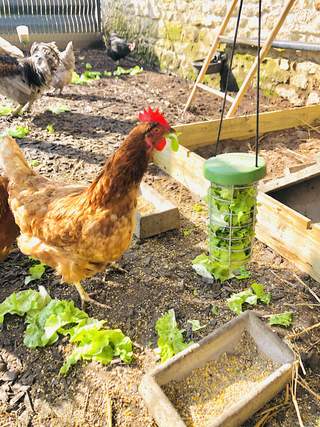
6. Rats. These are the most omnivorous of rodents, but as long as you feed them a vegan mix that has been fortified with all the nutrients they need, they will thrive. Indeed, rats who eat too much animal fat tend to become fat and die prematurely.
7. Chickens. If you watch a free-range hen, it soon becomes clear that she will eat anything – grass, beetles, worms, and everything in your veg patch if you’re not careful! Most chicken feed emulates this mix of plant and animal products. However, it is possible to buy vegan chicken feed, and circumstantial evidence suggests that hens can thrive on it. However, they are likely to produce fewer eggs, and you will not be able to stop them scratching for worms and bugs, no matter how vegan the layers pellets are!
8. Budgies and parrots. Vegans will have no obstacles to face with budgies and parrots, unless the birds are being bred. Egg-brooding female birds need a protein boost, normally delivered via an egg-based food or cooked meat. Vegan alternatives are available, though.
9. Finches. Many finch species enjoy bugs and mealworms as treats, but these are not an essential part of an adult finch’s diet. These birds thrive on a mixture of seeds and fresh vegetables.
10. One for reptile fans. When you think of pet snakes and lizards, you probably have an image of dead mice or doomed crickets. However, there are a few commonly kept pet reptiles that eat a 100% vegan diet, the most popular being the Green iguana. Getting the balance of vegetables just right is very important for the animal’s health, but meat is certainly something you won’t have to worry about.
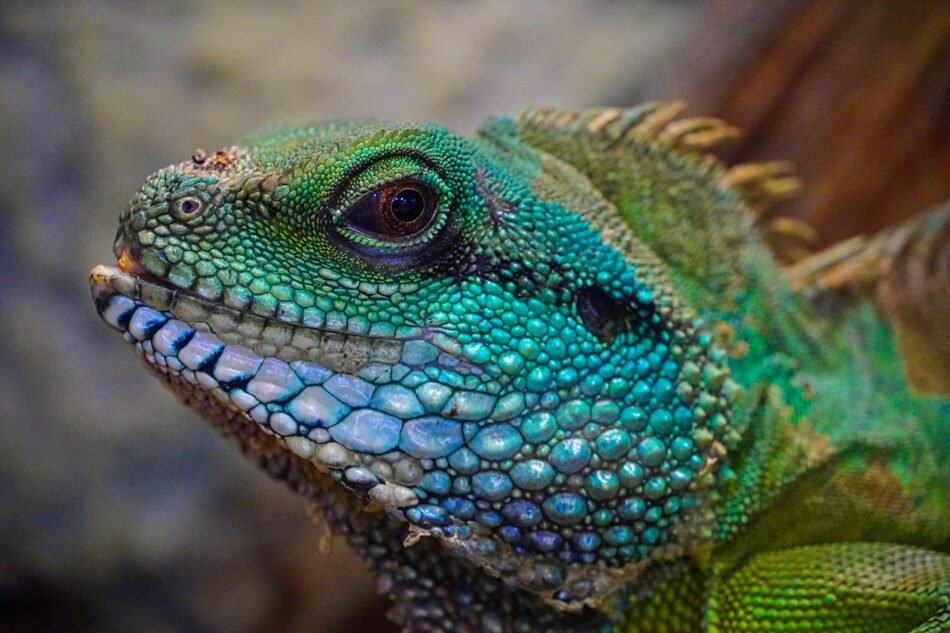
There is no shortage of choice when it comes to vegan pets. Keeping a vegan cat or dog is a much trickier proposition, though. And with all these animals, a balanced diet that matches the pet’s nutritional requirements should be your primary goal.
This entry was posted in Budgies
